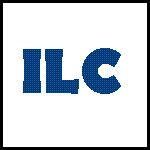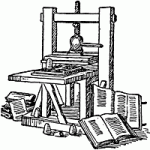 How many district leaders have been involved in a corporate visit with an International Director (ID) or International Officer (like the International President)? As a past ID, I made quite a few visits during my two years in office, and always enjoyed expounding on the value of Toastmasters to a new audience.
How many district leaders have been involved in a corporate visit with an International Director (ID) or International Officer (like the International President)? As a past ID, I made quite a few visits during my two years in office, and always enjoyed expounding on the value of Toastmasters to a new audience.
Sometimes I had as many as six visits in a day, and quite a few new clubs arose from those efforts. But what concerned me is that on occasion, these visits apparently were planned months in advance! In general, when a new club opportunity arises, you want to keep it moving as quickly as the organizational sponsors are comfortable with.
If it’s December and someone expresses an interest in building a new club at their company, you don’t want to tell them “Sure, we’ll have our local ID pop by and chat with you about it in April”! Yet I heard that sort of approach more than once.
By months later, they’ll have forgotten all about this, moved on to other projects, or filled their need (however incompletely) some other way. Don’t make them wait any more than a week or two, a month at the very most, for a meeting.
You don’t need an ID or the International President to do this! Any district leader should be comfortable with doing this, but most especially the district new club chair, the Lt. Gov’r of Marketing, and the District Governor. Since some districts are geographically large, Division and even Area Governors should be prepared to do this too.
With a goal of building lots of new clubs, you can’t be dependent on that once-or-twice-a-year visit by a dignitary. Sure, the ID may be a great salesman and able to close the sale, but he or she won’t be able to get personally involved with all that club-building. Remember, building a new club is a goal for every Area Governor (necessary to be a President’s Distinguished area).
What to focus on when telling a potential corporate sponsor about Toastmasters? Remember WIIFM — What’s In It For ME! (This means the sponsor, not you!) There’s a great article on the TI web site focusing specifically on building a corporate club, but the most important part is the Features, Benefits, and Values chart. You don’t necessarily want to just print this out and hand it to the prospect, but you should be familiar with what’s in it, and structure the critical part of your talk around it.
Be sure to research the company before you visit — understand their business and values, their strengths and weaknesses. Are they more of an hourly assembly line shop, are they a professional services company, are they financial in nature? If it’s a large multi-location company, what kind of employees are at the location where the club will be located?
What are their corporate values, is education and employee training important to them? Tie Toastmasters into those values. Hopefully you can talk to someone who is an employee before the visit and get some inside background on the culture, too (maybe someone who is already in Toastmasters!).
Keep the discussion interactive, not a sales presentation. Encourage the prospect to ask questions, stop and listen to them carefully, clarify if necessary, and then answer. If you don’t know the answer, tell them honestly you don’t know, but you’ll find out and get back to them quickly (and then do so).
Conclude with a strong finish, be clear on what the next steps are. If they’re expressing an interest, talk about scheduling a demo meeting. If they need to talk to someone else, give them time to do so, it may require another meeting. And maybe it’s just not a fit for this company at this time. Keep in touch, they may change their mind later.
Yes, you too can do a corporate visit, and do so effectively, creating a desire to join thousands of other companies world-wide that already know about the value of Toastmasters.
 Tomorrow is June 1, the last month in the Toastmasters year. Lots of people plan their work around deadlines, and Toastmasters are no different. From individual to district, many Toastmasters goals have June 30 as a drop-dead deadline.
Tomorrow is June 1, the last month in the Toastmasters year. Lots of people plan their work around deadlines, and Toastmasters are no different. From individual to district, many Toastmasters goals have June 30 as a drop-dead deadline.







